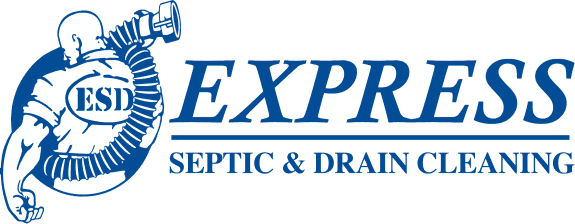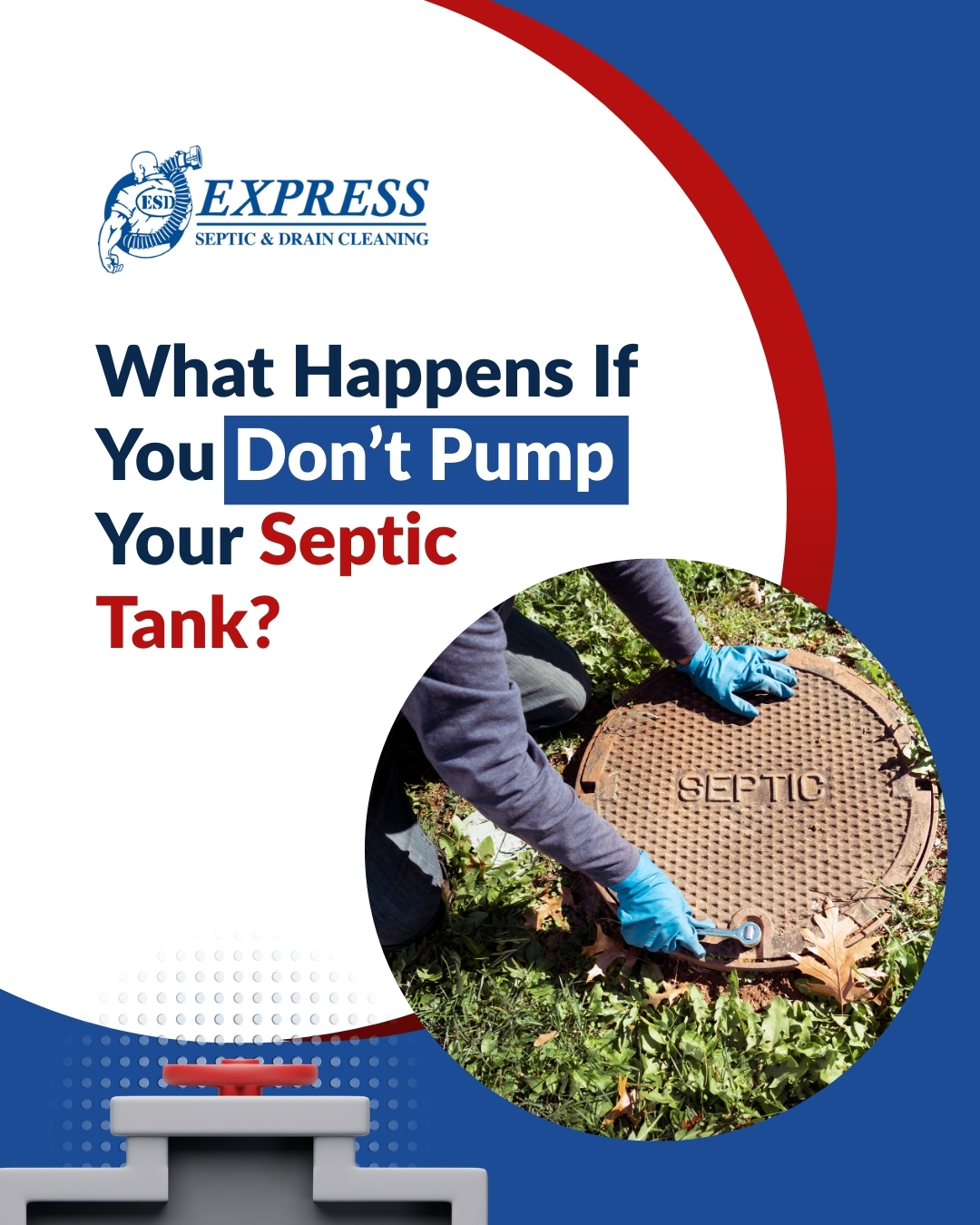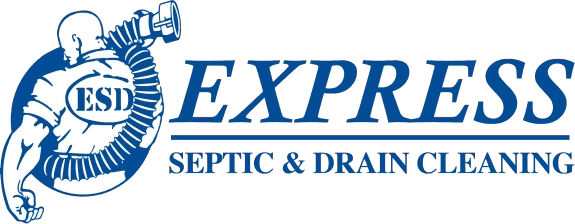Living in a home with a septic tank comes with responsibilities other homeowners don’t have to consider. You need to take more care with what you flush, monitor any chemicals that go in your drain, and know how often to pump the septic tank.
At Express Septic, we’ve been serving the Treasure Valley area of Idaho for decades. We offer effective, fast, and tidy septic tank services to keep your system in good condition year-round.
Why Septic Tank Pumping Is Essential in Nampa, ID
Wondering what happens if you don’t pump your septic tank? Septic pumping is a crucial process that removes solid waste from the tank so water can flow properly without flooding or damaging your property.
How septic systems work in rural and suburban Idaho homes
Nampa’s most common septic system setups have an underground tank separating the solid and liquid waste, allowing the liquid to disperse through a drain field. It’s filtered through gravel and soil, keeping waste and pathogens from groundwater.
Much of Idaho’s soil is clay-heavy, making it less than ideal for drainage. It also retains wastewater, meaning your septic tank needs frequent maintenance to avoid backups and flooding. Septic tanks in agricultural soils need regular maintenance as well to avoid issues like contamination from pollutants that will negatively affect soil health and plant growth.
Local guidelines and pumping recommendations
The state of Idaho has specifications that your septic system must meet, including pumping frequency guidelines that tell you when to pump your tank and environmental laws. At Express, we’ll make sure your septic system conforms to state and county laws so you and your family stay healthy and safe.
What Happens When You Skip Septic Pumping
Some consequences of not pumping your septic tank regularly are:
Waste buildup and sludge overflow
A healthy septic tank separates naturally into three layers: scum (fat, grease, and oils), effluent (liquids), and sludge (solid waste, toilet paper, etc.) But when the sludge overflows, solid waste will accumulate inside the tank, reducing its efficiency and potentially clogging the drain field, which means wastewater won’t be treated.
Sewage backup into your home
Once the tank is full, you’ll notice foul odors, slow drains, and gurgling sounds inside the house, usually in the bathrooms, kitchen, and basement. Contaminated wastewater and sewage may even start to flow back into your home.
Drain field flooding and permanent damage
When the leach field becomes oversaturated, it will fail because the soil can’t absorb any more water, and oxygen can no longer reach the wastewater to break down organic materials. This big problem will likely require replacement, which involves specialized drain field materials, excavation work in your field, and labor costs.
Groundwater contamination and health risks
If the leach field is saturated, septic overflow will run into your yard or nearby water sources, contaminating the groundwater. If well water is impacted, you can no longer use the well for drinking water due to health risks like bacterial and pathogen consumption.
Overflow also affects the local environment by adding too much nitrogen and phosphorus to the soil. It damages coastal life and contaminates local rivers, lakes, and streams.
Real Costs of Neglecting Your Septic System
A neglected septic system is an expensive problem that needs to be solved immediately.
Emergency repairs and remediation
While pumping your system may seem costly, it’s usually only a few hundred dollars. Complete system failure due to neglect will cost thousands to repair.
Property value and inspection failures
Thinking of selling your house? A full tank will affect your real estate transaction, giving the buyer leverage to negotiate a lower price. It’ll also reduce the marketability of your home, attracting fewer buyers, as people don’t want to move into a house that immediately needs maintenance.
Some septic system red flags home inspectors notice include bright green grass or standing water in the yard near the drain field, slow-moving drains, and any foul odors around the property.
How Often Should You Pump Your Septic Tank?
Now that you know you need regular septic tank pumping, let’s review how often you need to schedule service.
General rule by household size
In general, if you have 1 to 2 people living in the house, you can go 3 to 5 years without pumping the tank, and 2 to 3 years for four or more people, as long as you don’t notice any warning signs.
High-use scenarios that shorten pumping cycles
If you have a home-based business, rental units, or a large family, you’ll want to pump your tank more often. Garbage disposals and high-water-consumption appliances like large washing machines or even inefficient toilets will also increase the need for frequent pumping.
Local Septic Maintenance Tips for Nampa Homeowners
The basics of septic tank maintenance after it has been pumped include these best practices.
Best practices for avoiding septic overload
Taking shorter showers, repairing leaks, and monitoring your water usage are conservation habits that will protect your system. Avoid flushing fat, grease, or other oils that will clog the sewage lines, and don’t flush feminine hygiene products, flushable wipes, or paper towels. Chemicals like bleach and drain cleaner kill off helpful bacteria and shouldn’t be used when you’re on a septic system. Ideally, the only things going into the septic system are toilet paper, bodily waste, and water.
Signs you should schedule a pumping immediately
Some signs your septic tank is full and needs attention include pooling water in your yard, strong sewage smells, and indoor backups and overflows.
Why it’s better to pump before winter in Idaho
Idaho winters regularly dip below zero degrees, and frozen ground makes it difficult to access underground tanks. The sewage may also be frozen, making it un-pumpable. It’s best to schedule your pumping early to avoid weather delays.
Call Express Septic Today
Whether you need regular service or are experiencing septic failure, contact Express Septic for all your septic tank maintenance needs. We offer discounts, helpful customer financing, and fast, professional service.
Frequently Asked Questions
Is it that bad if I don’t pump my septic tank?
Yes, if you don’t pump your septic tank, your system can fail, causing problems in your home, your yard, and the surrounding environment.
Will my septic system stop working if I skip pumping?
Your septic system won’t stop working immediately if you stop pumping. Still, over time, you’ll experience septic system failure, need to replace the entire system, and worry about environmental remediation.
Can not pumping the tank ruin my drain field?
Yes, not pumping the tank can ruin your drain field. Sludge buildup will clog the pipes and prevent proper wastewater treatment. The field will be saturated and stop working properly, requiring expensive replacement.



